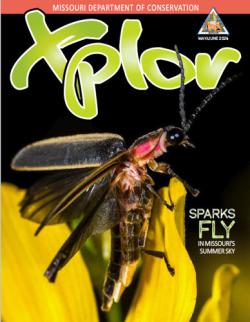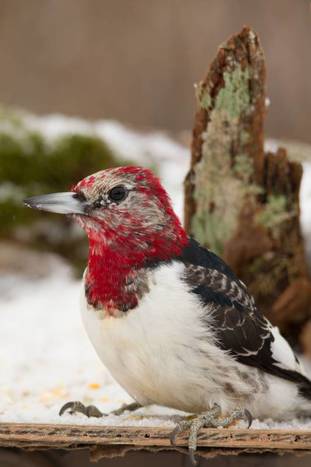
Xplor reconnects kids to nature and helps them find adventure in their own backyard. Free to residents of Missouri.


































Stay in Touch with MDC news, newsletters, events, and manage your subscription

Xplor reconnects kids to nature and helps them find adventure in their own backyard. Free to residents of Missouri.

A monthly publication about conservation in Missouri. Started in 1938, the printed magazine is free to residents of Missouri.


Cape Girardeau, Mo. -- This week's cold weather caught many of us off guard. It takes quite a bit of preparation to really be ready for winter storms. We check our vehicles to make sure they're full of fluids and the tires have tread. We stock warm blankets, extra water, extra food supplies in our homes and our cars just in case we're stuck in one place for a while due to weather. All of this preparation takes time and energy on our part, to get it all done. It makes me wonder what kind of energy it takes for wildlife to survive the cold of winter.
Some wildlife, like squirrels, will spend time stocking up and storing food sources before the cold hits. Black bears eat as much as they can in advance to store up the necessary fat they need to survive. Still others are subject to what's available throughout the cold months, which takes a toll on their energy levels and can make surviving the winter a game of chance.
Angela Pierce, a naturalist at the Missouri Department of Conservation Cape Girardeau Conservation Nature Center, said we can help these animals conserve some of their energy by helping to provide their three basic needs throughout the winter months: shelter, food and water.
"Making a shelter is as easy as making a brush pile," Pierce said.
Larger limbs and branches can be piled and then filled in with dried leaves and grass. Fallen trees can be left for the winter, also, to provide a place for wildlife to shelter in from the wind and elements. Real Christmas trees are great items to recycle for wildlife shelter, she said, by simply placing them outside after the holidays.
"These shelters provide cover for ground-foraging birds, rabbits, chipmunks, hibernating reptiles, amphibians and insects," Pierce said.
To help provide food in the winter months, high-fat suet and sunflower seeds can be provided to winter songbirds. High-fat food sources help the birds to build up their energy sources.
Pierce also said providing warm water on a daily basis will save animals from using their energy to search for unfrozen water sources. She recommends either replenishing water daily, or purchasing a heater for bird baths or backyard ponds.
By taking a few steps to help wildlife find shelter, food and water throughout these cold months, we can help make their chances of survival much higher. To find more resources on winter wildlife, go online to mdc.mo.gov.